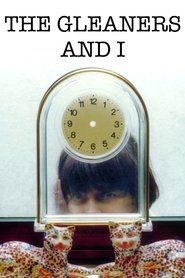— Here's Rembrandt's self-portrait. But it's really the same thing; It's always a self-portrait.
Reaching for the potato—not only crossing from behind the camera to in front of it but also announcing her desire—Varda undertakes what the American poet Joan Retallack calls “the poethical wager,” a risk- or chance-based poetics that is also an ethics, because it puts the artist’s body on the line and in the frame.
— So Mayer (Criterion)
With her camera, Varda finds the gracefully melon-shaped center of a Venn diagram where lyricism meets common sense. […] The Gleaners and I isn't a scolding treatise about the shamefulness of waste, but a celebratory jig inspired by the pleasures of squeezing every last, sweet drop from a grape harvest, or giving a tossed-off bit of plastic tubing new life in a 3-D painting. At the same time, Varda tints every frame of The Gleaners and I with a kind of joyous mournfulness: When you realize life is slipping by you, you want to hold on to every scrap.
— Stephanie Zacharek (Salon)
Hands are a consistent obsession in her filmography, and whenever they appear in her work I read them as a kind of self-portraiture, her way of alluding to herself.
— Anna Rose Holmer (Criterion)
In the post-industrial world, machines leave much behind, just as society leaves certain groups of people behind. Varda acknowledges as much in the film’s onscreen French title, which indirectly includes her in the bunch: Les Glaneurs (the gleaners)—though, it’s sometimes credited as Les Glaneurs et la Glaneuse, a title meaning The Gleaners and the Gleaner. The longer French title doesn’t translate well due to the French language’s gendered nouns. The shorter, original title is a simpler and more evocative label that resists overexplaining Varda’s crucial subjective perspective as the English-language title does (think Michael Moore’s Roger & Me, 1989). […] What makes The Gleaners and I more than a documentary about an important social problem is its self-reflexivity by a filmmaker unafraid to include herself in the story—now a fairly commonplace occurrence in documentaries.
— Brian Eggert (Deep Focus Review)
Synopsis: Varda focuses her eye on gleaners: those who scour already-reaped fields for the odd potato or turnip. Her investigation leads from forgotten corners of the French countryside to off-hours at the green markets of Paris, following those who insist on finding a use for that which society has cast off, whether out of necessity or activism.

